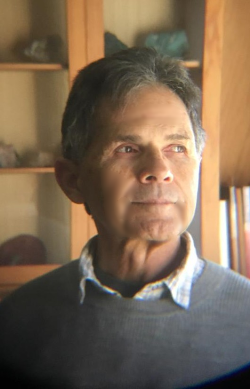Editor’s note: Amigos805 welcomes local guest columns, letters to the editor and other submissions from our readers. All opinions expressed in submitted material are those of the author and do not necessarily represent the viewpoint of Amigos805.
 By David Magallanes • Guest contributor
By David Magallanes • Guest contributor
Throughout the history of the world, there have been challenges to classical science.
It took a couple of centuries for people to embrace Isaac Newton’s heliocentric model, developed in the 16th century, establishing that the sun – and not the earth – was the center of the universe. That the earth was displaced from the center of the universe clashed with the belief that we were “exceptional.” Galileo had proposed this very idea nearly a century earlier, but he recanted when his life was threatened by the Catholic Church.
Darwin’s theories on evolution, published some 160 years ago, elicited deep emotions on both sides of the argument, for and against. The controversy continues raging to this day.
The period between approximately 800 and 1200 C.E. is known as the Golden Age of Islam. Mathematics, arts, and the sciences flourished in the Muslim regions during this time, contributing to advancements in algebra, astronomy, medicine, and architecture. To this day, most of the names of the visible stars are Arabic; for example, every amateur and professional astronomer is familiar with the stars Algol, Mizar, Spica, Rigel, and Deneb.
But then toward the end of this Golden Age of Islam, Islamic colleges began focusing on religion and de-emphasizing science education. Islamic mastery of the arts and sciences was winding down. Ultimately, the study of religion dominated Islamic education, eventually leading to some of the more extreme forms of Islam that we see active in today’s world.
Which brings us to trends that are presently taking root in the United States. Increasingly, conservative states are making moves to impose religion on what is supposed to be a secular education system. As climate change ramps up and the pandemic continues to disrupt our lives, we see that it is politically popular to disregard and ridicule science. Medical professionals such as Dr. Fauci are demonized. Even amid obvious indications that our earth is becoming hotter, more dangerous, and less habitable, many consider climate change to be a “Democrat hoax.”
The middle of the 20th century is considered the American Golden Age of Science. But are we now witnessing an aversion to science and an increase in religious extremism, as was the case with Islam a thousand years ago? Are we as a nation veering away from our pursuit of scientific advancement and literacy in this country?
— Writing services are offered at my website, David Magallanes Writing Services. David Magallanes is a retired college math educator.
***
Nuestra Aversión a la Ciencia
Por David Magallanes • Columnista invitado
A lo largo de la historia del mundo, ha habido desafíos a la ciencia clásica.
La gente tardó un par de siglos en adoptar el modelo heliocéntrico de Isaac Newton, desarrollado en el siglo XVI, que estableció que el sol, y no la tierra, era el centro del universo. Que la tierra fuera desplazada del centro del universo chocaba con la creencia de que éramos “excepcionales”. Galileo había propuesto esta misma idea casi un siglo antes, pero se retractó cuando su vida fue amenazada por la Iglesia Católica.
Las teorías de Darwin sobre la evolución, publicadas hace unos 160 años, provocaron emociones profundas en ambos lados del argumento, a favor y en contra. La polémica sigue viva hasta el día de hoy.
El período entre aproximadamente 800 y 1200 EC se conoce como la Edad de Oro del Islam. Las matemáticas, las artes y las ciencias florecieron en las regiones musulmanas durante este tiempo, contribuyendo a los avances en álgebra, astronomía, medicina y arquitectura. Hasta el día de hoy, la mayoría de los nombres de las estrellas visibles son árabes; por ejemplo, todo astrónomo aficionado y profesional está familiarizado con las estrellas Algol, Mizar, Spica, Rigel, y Deneb.
Pero luego, hacia el final de esta Edad de Oro del Islam, las universidades islámicas comenzaron a centrarse en la religión y le restaron importancia a la educación científica. El dominio islámico de las artes y las ciencias estaba disminuyendo. En última instancia, el estudio de la religión dominó la educación islámica, lo que eventualmente llevó a algunas de las formas más extremas del islam que vemos activas en el mundo actual.
Lo anterior nos obliga a tomar en cuenta las tendencias que actualmente se están arraigando en los Estados Unidos. Cada vez más, los estados conservadores están haciendo movimientos para imponer la religión en lo que se supone que es un sistema de educación secular. A medida que aumenta el cambio climático y la pandemia continúa trastornando nuestras vidas, vemos que es políticamente popular ignorar y ridiculizar la ciencia. Los profesionales médicos como el Dr. Fauci son demonizados. Incluso en medio de indicaciones obvias de que nuestra tierra se está volviendo más caliente, más peligrosa y menos habitable, muchos consideran que el cambio climático es un “engaño demócrata”.
La mitad del siglo XX se considera la Edad de Oro estadounidense de la ciencia. Pero ahora, ¿estamos presenciando una aversión a la ciencia y un aumento de extremismo religioso como en el caso de islam hace mil años? ¿Nos estamos desviando de nuestra búsqueda de los avances y los conocimientos científicos en este país?
– – Servicios de escritura se ofrecen en mi sitio web, David Magallanes Writing Services. David Magallanes es un profesor de matemáticas jubilado.
Editor’s note: Amigos805 welcomes comments on stories appearing in Amigos805 and on issues impacting the community. Comments must relate directly to stories published in Amigos805, no spam please. We reserve the right to remove or edit comments. Full name, city required. Contact information (telephone, email) will not be published. Please send your comments directly to frank@amigos805.com
